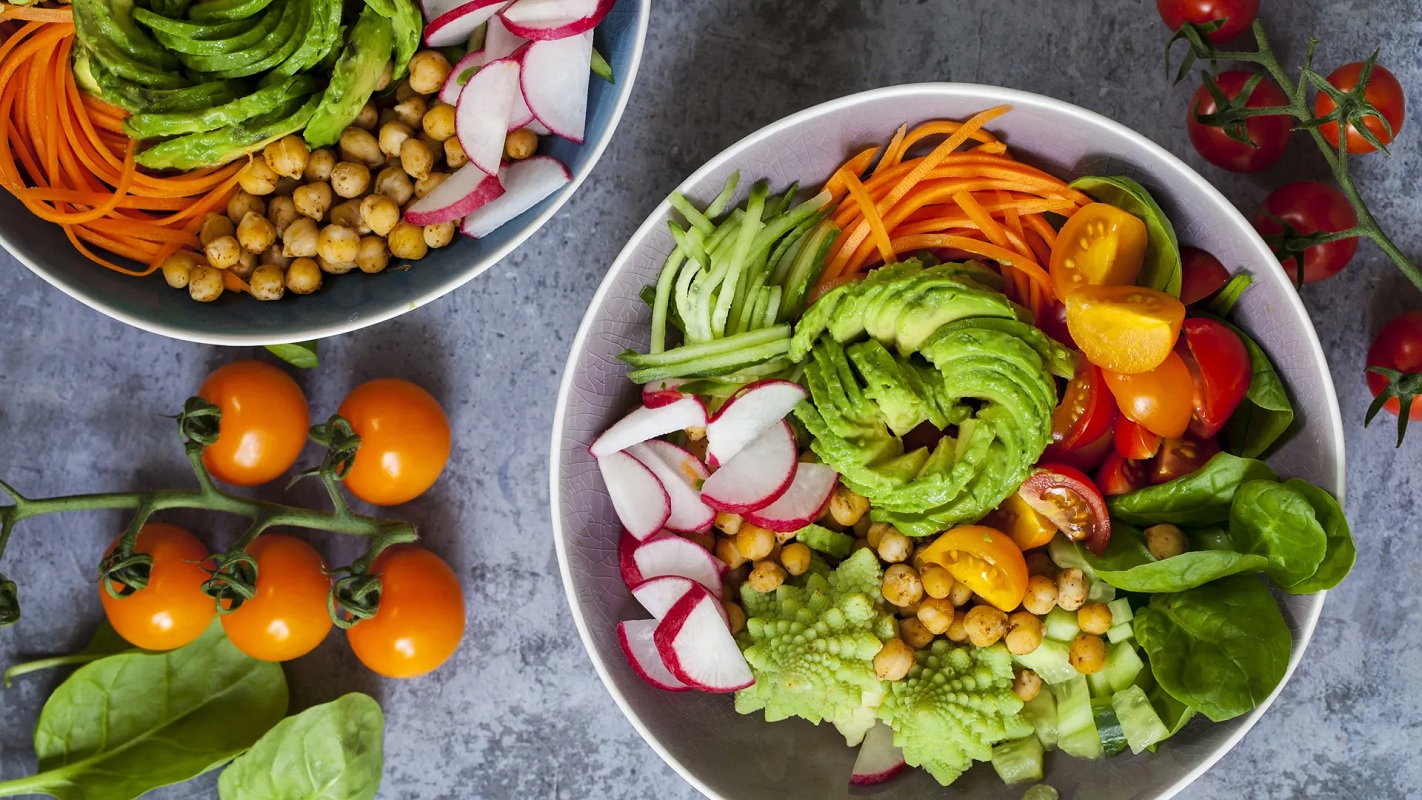Table of Contents
Veganism is a lifestyle that excludes the use of animal products, such as meat, dairy, eggs, and honey. The main reason people adopt a vegan diet is for ethical reasons, as it eliminates animal cruelty and exploitation. In recent years, veganism has become more popular for its health benefits and its positive impact on the environment. In this guide, we will explore what veganism is, the benefits of a vegan lifestyle, and how to make the transition to a vegan diet.
Understanding Plant-Based Diets:
As a vegan, you will need to rely on plant-based foods for your nutrition. A variety of fruits, vegetables, grains, and legumes form the foundation of a vegan diet. Common misconceptions about veganism include that it is a restrictive diet and that it lacks essential nutrients. However, with careful planning, a vegan diet can be nutritionally complete and delicious.
Making the Transition to Veganism:
Making the transition to veganism can be daunting, but it doesn’t have to be. You can start small by incorporating more plant-based meals into your diet. Meal planning is a helpful tool, as it ensures you get all the necessary nutrients and helps you avoid falling back on unhealthy options. Finding vegan-friendly products can also be made easier by researching local stores, restaurants, and online retailers.
Ethical and Environmental Considerations:
One of the primary reasons people adopt a vegan diet is to reduce animal cruelty and exploitation. Veganism also has a positive impact on the environment, as it reduces the carbon footprint associated with animal agriculture. Understanding the ethical and environmental implications of your food choices is an important aspect of a vegan lifestyle.
Staying Healthy on a Vegan Diet:
Many people worry about the health implications of a vegan diet. However, with careful planning, a vegan diet can meet all your nutritional needs. Essential nutrients like protein, iron, calcium, and vitamin B12 can be obtained from plant-based sources. It’s also important to be aware of common health concerns, such as vitamin D deficiency, and to consider taking vitamin supplements if necessary.
Is Veganism Right for You?
Deciding whether veganism is right for you is a personal choice that involves considering various factors such as your personal beliefs, health needs, and lifestyle. Here are some steps that can help you make this decision:
- Consider your personal beliefs: If you are concerned about animal rights, environmental impact, or health, you may want to consider a vegan lifestyle. Take some time to educate yourself on these issues and see if they align with your values.
- Assess your health needs: If you have any specific health concerns, it is important to talk to a doctor or a registered dietitian to see if a vegan diet is appropriate for you. For example, if you have a history of anemia, you may need to focus on getting enough iron from plant-based sources.
- Evaluate your lifestyle: Consider if a vegan diet fits into your lifestyle and routines. Will you be able to find vegan options when eating out or traveling? Can you make the time to prepare healthy vegan meals at home?
- Try it out: If you’re interested in trying a vegan lifestyle, start with incorporating more plant-based meals into your diet and gradually transitioning towards a fully vegan diet. Pay attention to how you feel physically and mentally and see if a vegan diet is sustainable for you.
In this beginner’s guide to veganism, we have explored the definition of veganism, the benefits of a vegan lifestyle, how to make the transition to a vegan diet, and how to stay healthy on a vegan diet. Adopting a vegan lifestyle can have a positive impact on both personal health and the environment, and with careful planning and education, it can be a fulfilling and enjoyable experience. We hope this guide has provided you with valuable information and encouragement to start your journey towards a vegan lifestyle.

